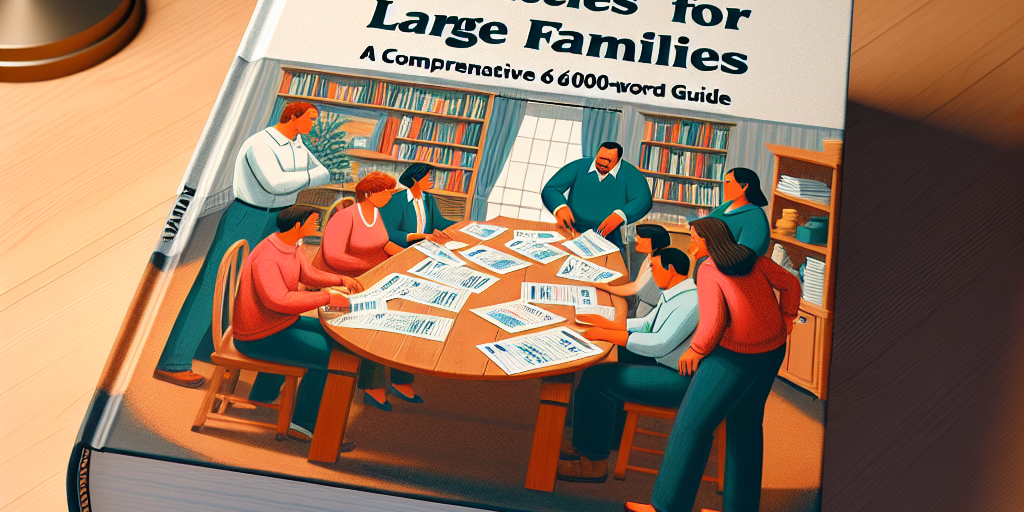Managing Finances for Large Families: A Comprehensive 6000-word Guide
Introduction
Managing finances for a large family can be a daunting task. With more mouths to feed, more expenses to cover, and more financial decisions to make, it’s important to have a solid plan in place to keep everything on track. In this comprehensive guide, we’ll cover everything you need to know about managing finances for large families, from budgeting and saving to investing and planning for the future.
Creating a Budget
The first step in managing finances for a large family is creating a budget. A budget is a financial plan that outlines your income and expenses and helps you allocate your resources in the most effective way possible. When creating a budget for a large family, it’s important to take into account all of your expenses, including groceries, housing, utilities, transportation, healthcare, and education, as well as any other costs associated with raising a family. By carefully tracking your income and expenses, you can ensure that you’re living within your means and avoiding unnecessary debt.
Saving for the Future
In addition to budgeting, it’s important for large families to save for the future. This can include building an emergency fund to cover unexpected expenses, saving for your children’s education, and setting aside money for retirement. By making savings a priority, you can ensure that your family is financially secure and prepared for whatever the future may hold.
Investing for the Long-Term
Once you have a budget in place and are saving for the future, it’s important to consider long-term investments that can help grow your wealth over time. This can include investing in stocks, bonds, mutual funds, and real estate, as well as other options that may be suitable for your family’s financial goals. By diversifying your investments and holding a long-term perspective, you can build wealth and secure your family’s financial future.
Insurance and Estate Planning
Another important aspect of managing finances for a large family is ensuring that you have the right insurance and estate planning in place. This can include life insurance to protect your family in the event of your death, health insurance to cover medical expenses, and disability insurance to provide income if you’re unable to work. In addition, it’s important to have a will and estate plan in place to ensure that your assets are distributed according to your wishes and that your family is taken care of after your passing.
Teaching Financial Responsibility
Finally, managing finances for a large family also involves teaching financial responsibility to your children. By instilling the value of saving, budgeting, and investing at an early age, you can set your children up for future financial success and help them avoid common financial pitfalls. This can include setting up savings accounts for your children, teaching them about the basics of investing, and involving them in family financial decisions.
Conclusion
Managing finances for a large family is no easy task, but with the right plan in place, it’s possible to ensure that your family is financially secure and prepared for the future. By creating a budget, saving for the future, investing for the long-term, securing the right insurance and estate planning, and teaching financial responsibility to your children, you can set your family up for financial success. With careful planning and diligence, you can ensure that your family has the resources it needs to thrive and prosper for generations to come.







